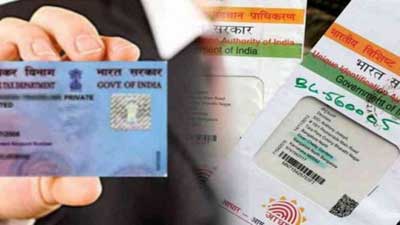Company Registration In UK

REGISTRATION OF COMPANY IN UK WITH LONDON ADDRESS
A company can be registered either electronically or by sending paper forms and documents to Companies House, United Kingdom (UK). Over 90% of new companies are registered electronically. A copy of the company’s articles of association must be provided. This document contains the company’s constitution. Most companies have articles based on the Model Articles provided by the government as a specimen set of articles for the different types of company. The information required for form IN01 is also required. This mainly comprises the address of the company’s registered office and the details of the shareholders, directors and company secretary (if any) must also be given. This information is verified by providing certain so-called ‘security information.
Advantages
MINIMISING PERSONAL LIABILITY
The biggest benefit of forming your own company is limited liability protection. Simply put, should your company run into trouble, your personal assets will be secure. This is because a limited company is treated as a separate legal entity; a legal ‘person’ in its own right. Therefore, the business is entirely separate from the people who own and manage it..
PROFESSIONAL STATUS
Your professional status and image will improve considerably when you start trading as a limited company. Whilst the activities, ownership structure, and internal management of your business may be the same as when you were operating as a sole trader, companies are held in much higher regard and create a better impression.
TAX EFFICIENCY AND PLANNING
Limited companies in the UK currently pay only 19% Corporation Tax on profits, whereas sole traders pay 20-45% Income Tax on their profits. This offers greater flexibility for tax planning.
SEPARATE LEGAL IDENTITY
Unlike the sole trader structure, a limited company is a legal ‘person’ in its own right, with an entirely separate identity from its owners and directors. As a result, companies can enter into contracts in their own name and are responsible for their own debts and liabilities.
CREDIBILITY AND TRUST
The professional status of a limited company structure will add valuable prestige and credibility to your business. In fact, certain businesses and agencies (particularly in the IT, finance, and construction industries) are only prepared to engage with other incorporated businesses. This is usually due to the level of risk involved in the contracts they award.
PROTECTING A COMPANY NAME
All company names must be entirely unique, so no two companies can be set up with the same name, or even names that are very similar to one another. The official name of your company cannot be registered and used by any other business. A sole trader’s business name does not enjoy this protection.
Get Expert Assistance
Company Registration
TYPES OF CORPORATION
PUBLIC LIMITED COMPANY (PLC)
A public company is a corporation whose ownership is open to the public. Anyone can buy shares in the company’s stocks. A limited company is a corporation in which an individual’s financial liability for the company is restricted to a fixed sum – this sum is usually the value of their investment. A PLC is a combination of these two concepts – it is a public company whose shareholders (who could, theoretically, be anyone) are responsible for the company’s financial liabilities to the extent of their investment.The other key point of note is that before a PLC can start business, it must have allotted shares to the total value of at least £50,000..
PRIVATE COMPANY LIMITED BY SHARES (LTD)
In contrast to a public company, a private company cannot be owned by any members of the public. It will instead be owned by an NGO (non-government organisation) or a relatively small number of shareholders, and the sale of company shares is handled privately. However, these companies are limited, like PLCs, and this has the same implications for a private company as it does for a public company. Once again, an individual is only responsible for the business’s financial liabilities to the extent that they invested in the company. Private limited companies are one of the most common types of companies.
DOCUMENTS REQUIRED
- Name of the Company.
- Directors and Shareholders Name.
- Directors and Shareholders Address.
- Directors and Shareholders Date of Birth.
- Directors and Shareholders Mobile.
- Directors and Shareholders Email.
- Copy of Passpo

TAXATION
CORPORATE TAX:
- A UK company will be subject to UK corporation tax on its income profits and capital profits. The rate of corporation tax for all companies is currently 19%. This rate is due to be reduced to 17% in April 2020. Corporation tax is paid nine months after the end of the accounting period, or, for companies with profits of more than £1.5 million, in four equal instalments, due in the seventh and tenth months of the current accounting period and the first and fourth months after the end of the accounting period. For accounting periods starting on or after 1 April 2019,companies with annual taxable profits of £20 million or more are required to make payments in the third, sixth, ninth and twelfth months of their accounting period. Where a company is a member of a group, the threshold will be divided by the number of companies in the group.
CORPORATE INCOME TAX RATE:
- Flat 17%

FREQUENTLY ASKED QUESTIONS
Yes. Any person can set up a UK limited company. It is not necessary for directors or shareholders to be resident in the UK although your registered address must be in the UK. You cannot act as a director if you are bankrupt or are under the age of 16. There are a number of benefits in registering a UK company for people living in other countries.
The rules on the availability of names are quite complex. In general you can use any company name that is unique. The name must end with the word ‘Limited’ or its abbreviation ‘Ltd’ and you cannot use a name that contains abusive or offensive words. When considering whether a name is the ‘same as’ another already registered, certain words such as ‘the’, ‘&’ or ‘and’, ‘company’, ‘co’, ‘www’, ‘UK’, ‘EU’ and ‘international’ (plus many others) are ignored when comparing similarity in names.
All UK companies must have a registered address in the UK. We will provide a registered office for your company as part of our Registration Agency Service. This allows for the service of routine paperwork and official correspondence from the authorities. We have facilities at our head office in Cheshire or at a prestigious London address. If you need to change this to an alternative UK address after incorporation we will prepare the necessary paperwork to do this.
A UK limited company can be set up with just one person. It must have at least one director who can also be the sole shareholder. There is no limit to the number of directors or shareholders. A company secretary is recommended for overseas clients.
A company can have any number of shareholders. There must be at least one shareholder, as a company cannot exist without a share capital. There is no limit to the number of shares that can be held by an individual.
The shareholding of a company determines its ownership, and this is usually structured very easily. If your company is to be wholly owned by yourself, you only need a single share issued in your name to begin with. Alternatively, if you wish to distribute the value of the company amongst family members or investors, 100 shares will usually give the flexibility required.
Companies House is the UK Government Agency responsible for recording the incorporation of UK companies, and maintaining public record information on all UK companies. The Registrar of Companies is the chief officer of Companies House who has the power to initiate investigations and prosecutions against directors who commit offences against the Companies Act.
